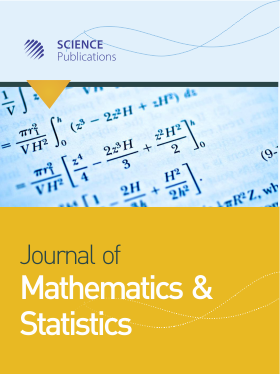Vedas and the Development of Arithmetic and Algebra
Abstract
Problem statement: Algebra developed in three stages: rhetorical or prose algebra, syncopated or abbreviated algebra and symbolic algebra-known as “school algebra”. School algebra developed rather early in India and the literature now suggests that the first civilization to develop symbolic algebra was the Vedic Indians. Approach: Philosophical ideas of the time influenced the development of the decimal system and arithmetic and that in turn led to algebra. Indeed, symbolic algebraic ideas are deep rooted in Vedic philosophy. The Vedic arithmetic and mathematics were of a high level at an early period and the Hindus used algebraic ideas to generate formulas simplifying calculations. Results: In the main, they developed formulas to understand the physical world satisfying the needs of religion (apara and para vidya). While geometrical focus, logic and proof type are features of Greek mathematics, “boldness of conception, abstraction, symbolism” are essentially in Indian mathematics. From such a history study, a number of implications can be drawn regarding the learning of algebra. Real life, imaginative and creative problems that encourage risk should be the focus in student learning; allowing students freely move between numbers, magnitudes and symbols rather than taking separate static or unchanging view. A move from concrete to pictorial to symbolic modes was present in ancient learning. Real life practical needs motivated the progress to symbolic algebra. The use of rich context based problems that stimulate and motivate students to raise levels higher to transfer knowledge should be the focus of learning. Conclusion/Recommendations: The progress from arithmetic to algebra in India was achieved through different modes of learning, risk taking, problem solving and higher order thinking all in line with current emphasis in mathematics education but at rather early stage in human history.
DOI: https://doi.org/10.3844/jmssp.2010.468.480

- 4,321 Views
- 4,574 Downloads
- 2 Citations
Download
Keywords
- Vedic philosophy
- mathematics education
- ancient Indian mathematics
- development of algebra
- mathematical knowledge
- symbolic algebra
- Vedic literature
